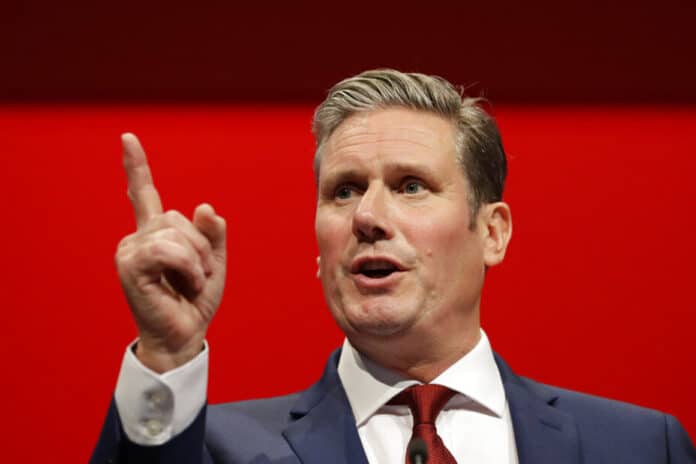Less than a year ago, the Union Jack bunting fluttered in Downing Street, and Keir Starmer strode triumphantly into No 10 to the rapturous applause of a nation desperate for change. His landslide victory was supposed to mark the beginning of a Labour government rekindled with purpose, compassion, and a commitment to the values it was built upon: standing up for the vulnerable, listening to its people, and governing with integrity.
Now, mere months later, that image is in ruins.
In what can only be described as a humiliating collapse of authority, Starmer has been forced into a dramatic climbdown on his welfare reforms, blindsided by a rebellion not from the opposition benches, but from his own party. The scale of dissent is staggering; a Prime Minister with a 165-seat majority facing the kind of open revolt that is, frankly, without precedent this early in a premiership.
A Rebellion Born of Arrogance and Detachment
The seeds of this political disaster were sown not by malevolent forces outside the party, but by a Downing Street machine that simply refused to listen. Up to 140 Labour MPs had already made their discontent known in private; they warned the whips, the whips told No 10, and No 10, astonishingly, ignored them.
The result? A full-scale rebellion, an embarrassing public climbdown, and a Prime Minister who now appears increasingly adrift, struggling to hold his own Cabinet together.
The timing could hardly be worse. Starmer’s attention has been elsewhere, jetting between global summits: G7 in Canada, urgent talks over Israel-Iran tensions, NATO negotiations. Yes, international diplomacy is critical. But what is unforgivable is the staggering mismanagement at home. Any Prime Minister should be able to trust their senior team to keep the house in order; instead, they’ve let it burn.
Betraying Labour’s Soul
The most damning aspect of this episode is not the political miscalculation, but the moral one. Labour has historically been the party that defends the welfare state, that fights for those who have the least, and that does not balance the books on the backs of the disabled and the vulnerable.
Yet these proposed reforms, particularly to Personal Independence Payments (PIP) and the health element of Universal Credit, were a betrayal of the very people Labour was elected to protect. That such cuts were even considered is not just a policy error, it is an abandonment of Labour’s historic mission.
This is not just a rebellion of backbenchers; this is a rebellion of conscience.
A Cabinet in Crisis
The fallout has been ugly. Sources say the atmosphere between No 10 and No 11 is toxic, with Chancellor Rachel Reeves now facing the ire of many MPs furious at the mishandling of both the policy and the political strategy. The search for billions in savings will now send the Treasury scrambling for alternatives, but the damage is done.
Starmer is expected to announce serious concessions to save face and to prevent outright defeat on Tuesday. The likely retreat will see the most controversial changes scrapped for existing claimants, a desperate move to pacify his own party. Labour grandee Harriet Harman has suggested these concessions may just about hold the rebellion at bay, but the scars will remain.
A Leadership in Freefall?
It is difficult to overstate the gravity of this moment. Less than a year in, Keir Starmer finds himself presiding over a government at war with itself, accused of ignoring its own MPs, and forced into reverse on one of its flagship domestic policies.
For a leader to face this level of internal revolt with a majority of this size is simply unheard of.
It didn’t have to be this way. Starmer promised competence, unity, and a return to Labour’s core principles. Instead, he has delivered chaos, division, and policies that contradict the very heart of the Labour movement.
This isn’t just a misstep. It’s a profound failure of leadership, and for many in his party, it’s starting to look like a betrayal.







